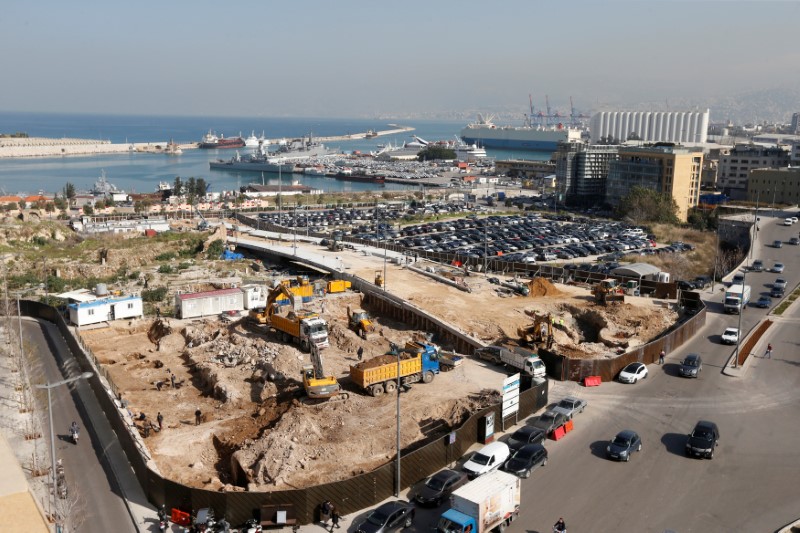 © Reuters. Under construction site is seen near the port of Beirut
© Reuters. Under construction site is seen near the port of BeirutBy Davide Barbuscia
DUBAI (Reuters) – Lebanon needs to address its big fiscal deficit, work on structural reforms to help its economy grow and restructure key sectors such as electricity and telecoms, an International Monetary Fund official said.
Lebanese economic growth has been slowed by the war in neighboring Syria, by taking in huge numbers of refugees from that fighting and by years of its own political inertia.
This has left it with a huge fiscal deficit equivalent to 9 to 10 percent of its gross domestic product.
It needs to narrow that gap, which the IMF described as “unsustainable”, gradually down to 5 percent of GDP, Jihad Azour, director at the IMF’s Middle East and Central Asia department, told Reuters.
The economy in Lebanon, which is preparing for its first parliamentary elections since 2009, is growing at a sluggish rate of 2 to 2-1/2 percent, Azour said.
“The Lebanese economy is not growing enough in order to stabilize the fiscal situation as well as also address certain number of issues including the issue of refugees.”
Over $11 billion in aid pledges promised to Lebanon at a Paris conference last month are the right incentive for the country to “couple the investment program with the right fiscal adjustment as well as also the restructuring of some of the key sectors that are needed in order to see the economy growing back”, Azour said.
The central bank has for years resorted to stimulus packages and financial operations that the IMF has called “unconventional” financial engineering to keep its foreign reserves stable and to promote economic growth.
The finance minister said at the end of March that the government planned to issue $5 billion in new foreign currency bonds in a swap operation with the central bank in exchange for debt in Lebanese pounds to help it meet its spending needs at an interest rate of 1 percent.
When asked about the IMF’s assessment of such financial engineering operations, Azour said that Lebanon needs to reduce the level of budget deficit in a gradual way, restructure key entities, especially on the energy side, and introduce structural reforms that will re-ignite economic growth.
“Failing of doing this, the government, or Lebanon, will need to do those kinds of transactions.”
Fusion Media or anyone involved with Fusion Media will not accept any liability for loss or damage as a result of reliance on the information including data, quotes, charts and buy/sell signals contained within this website. Please be fully informed regarding the risks and costs associated with trading the financial markets, it is one of the riskiest investment forms possible.
Source: Investing.com




























